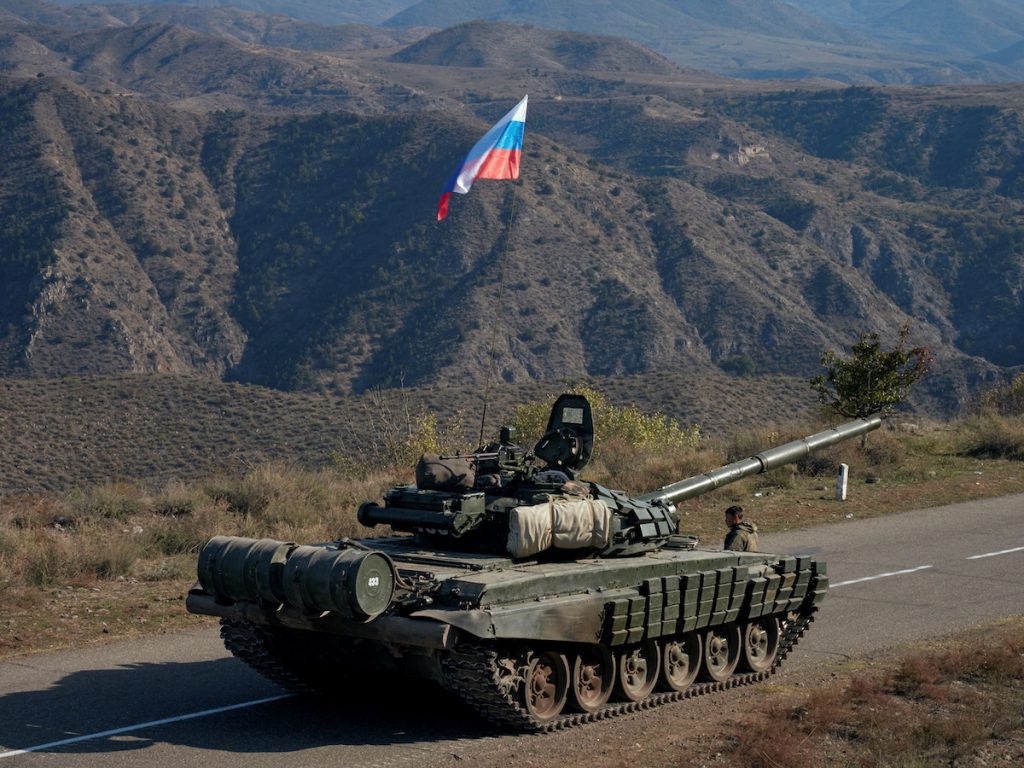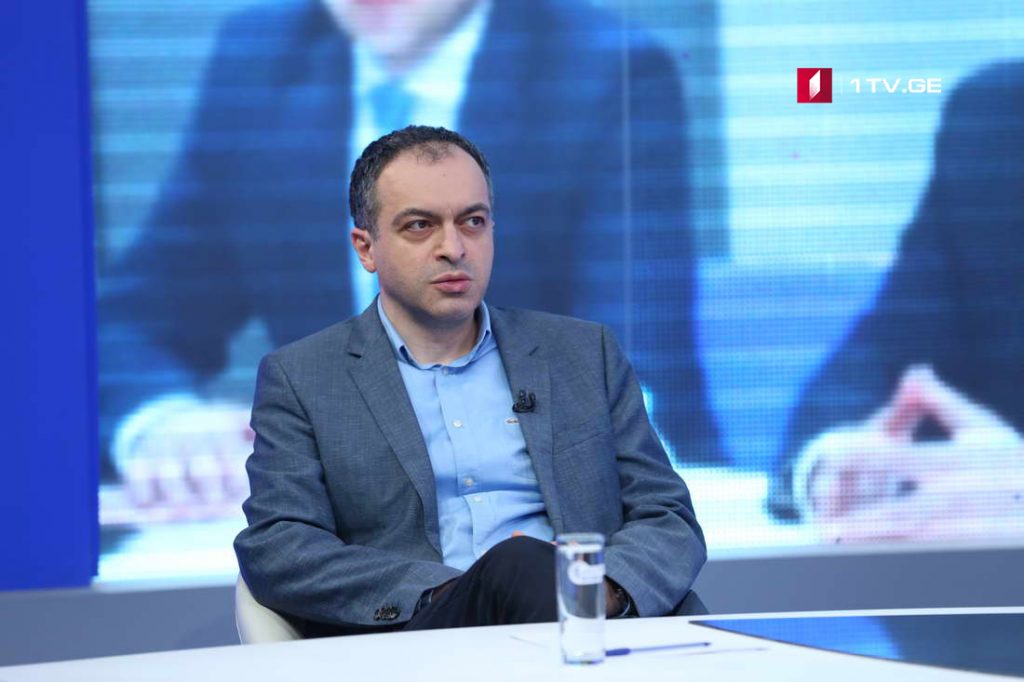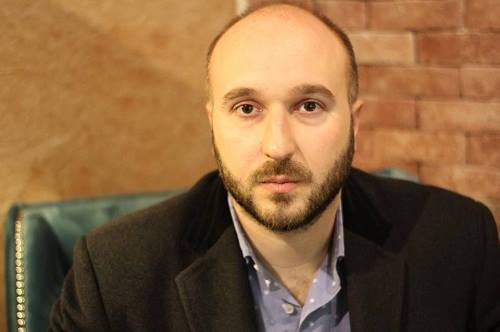Karabakh faces a new reality. How does this affect Georgia?
On the night of November 10, the presidents of Russia and Azerbaijan and the Prime Minister of Armenia Nikol Pashinyan signed an agreement to end hostilities in Karabakh.
Per the agreement, part of the territory of Nagorno-Karabakh, as well as the outlying areas which were previously controlled by Armenia, will be transferred to Azerbaijan.
In addition, Russia will become the only world power to have peacekeepers in Karabakh.
How will this new reality affect Georgia? JAMnews sat down to hear the opinions of several Georgian experts:

Tornike Sharashenidze, Doctor of International Relations, Professor at the Georgian Institute of Public Affairs:
What happened in Karabakh and how has the region changed?
I never expected it would go this far.
I thought Russia would continue to supply Armenia with weapons, but it looks like the drones have changed everything. Azerbaijan destroyed Armenia’s equipment, which it had in large quantities. The drones showed that there was a revolution in the military sphere. So I think that for Russia, at least to some extent, this was all a surprise.

Now the most important question is what will happen in Armenia—who will replace Pashinyan, whose days as prime minister are clearly numbered?
Will the old pro-Russian regime return to power, or will a more Western-oriented government come to power? But where would this pro-Western government come from? Should it have a leader? We’ve seen what happened to the last one. After Pashinyan, no one would dare to claim this type of leadership. This country is now in a state of shock.
The same cannot be said about Azerbaijan. Today Azerbaijan is much stronger than it was, and this changes many things in the region.
Yes, Azerbaijan is our partner, but it’s one thing to have a close partner with equal power to us, and another to have a close partner who is much stronger than you in all respects. Georgia must take this reality into account.
As for Turkey and Russia – apparently, at this stage, they have made some kind of deal. Russia intervened in the situation in Syria, which was considered a zone of Turkish influence, and in return Russia allowed Turkey to intervene at a certain level in the situation in the Caucasus.
What does this change for Georgia?
Georgia clearly avoided a worst-case scenario—those of us who followed this situation feared that in the event that the conflict escalated, Russia would require a corridor through Georgia to move troops. This didn’t happen, and that’s good for us.
It is in Georgia’s best interests that this agreement leads to peace in the region. This is important for us from an economic point of view, if only because we are dependent on transit.
I do not agree with the opinion that Georgia’s transit potential is under threat. On the contrary. I believe our transit position will be further strengthened. Now Azerbaijan has more chances to implement its projects. For example, the Trans-Caspian project, that is, the construction of a gas pipeline from Turkmenistan across the Caspian Sea, which will feed into the Shah Deniz gas pipeline and strengthen our position as more gas is transported.
This way, we can get to the point when Shah Deniz will be used to its full potential, and we will get gas practically for free.
As for the presence of Russia in the Caucasus, this is already a fait accompli. The Kremlin already had influence in the region: it already has military bases here, including on our territory, 40 kilometers from Tbilisi. So Russia deploying a military contingent in Karabakh does not really strengthen its position.
Even more remarkable is the fact that Karabakh has created a precedent in the region, stating that territories lost in war can be returned through war. This precedent should inspire particular concern for Sukhumi and Tskhinvali (Abkhazia and South Ossetia).
Paata Zakareishvili, conflict expert:
What happened in Karabakh and how has the region changed?
By taking Shusha, Azerbaijan practically presented Russia with a fact. And Russia actually set up its ally and forced him to sign a peace treaty. Armenia was forced to cede the territory of both Karabakh itself and the adjacent regions completely occupied by it.

Of course, Turkey was backing Azerbaijan, and the Turkish factor forced Russia to practically abandon Armenia.
We can say that the Karabakh conflict was not resolved once and for all, but that it’s a significant step.
Azerbaijan must be able to prevent ethnic cleansing and allow the Armenian population to return home. Naturally, not everyone will return, but they must create the most favorable conditions for this, and to do this we need the help of the international community.
What did Russia get out of the situation? Now, it will be the only country to deploy a peacekeeping contingent and troops in the Lachin Gorge. Thus, Russian troops are deployed in all conflict zones of the Caucasus. This is, of course, an unpleasant reality, but I think that nothing particularly special occurred.
Now, an important question remains: what will Armenia do? Will it still rely on Russia, which is a very unreliable ally, or will it start looking to the West and distance itself from Russia? The fact is that we’re facing a new reality, and Armenia now has a unique chance to speak directly with the West, NATO and the EU, and not through Russia.
To be honest, I doubt that Armenia will be able to do this. I think that Russia will continue to retain its influence in the Caucasus, although it will have to do so under the shadow of Turkey.
What is changing for Georgia?
This event is changing the geopolitical context, and it is clear that this change will have an impact on Georgia as well.
Now two political forces will present themselves in Georgia: one militarist, which claims that we will return only what was lost by war, and there is no point in negotiating, and the second —pro-Russian, intent upon improving relations with Russia, because without it, both Georgia and Armenia lost territories.
At the same time, the influence of those voices and forces of which I am a part, and which is already weakening—those who believe that negotiations with the Abkhaz and Ossetians can resolve the situation, will only grow less and less prevalent.
However, everything will depend on how pro-Western our government will be.
Now we have a unique chance to start working with Turkey.
Turkey clearly wants to enter the Caucasian arena—it did it through Azerbaijan, and may also do so with our help.
We must make Turkey our ally and thereby neutralize the Russian factor. We must join NATO with Turkey’s help. We also need to talk with Armenia, which is now in a difficult situation, and act as a mediator between Armenia and Europe. To convince Armenia that it has no prospects with Russia. However, I think we are still not capable of this.
Giorgi Kanashvili, conflict expert
What happened in Karabakh and how has the region changed?
Failure to reach a compromise on time often ends up costing more than you would have lost in the compromise.
After this peace agreement, Armenia found itself in a much worse position than it would have been under the so-called Madrid principles discussed earlier, which provided for the transfer of first five regions, then two more regions around Karabakh to Azerbaijan, and discussion of the status of Karabakh.

The steps taken by Azerbaijan and the current result show that all this was agreed between Moscow and Istanbul. This improved Russia’s situation greatly, as the parties agreed to deploy a Russian military contingent and build a Russian military base in the area.
Incidentally, the Russian peacekeeping brigade left for Armenia shortly before the news of its deployment spread.
As a result, we are seeing a much larger Russian military presence in the region than before the conflict.
What has changed for Georgia?
The more Russian troops in the region, the more problems it means for us.
This dynamic shows that the balance of power in the region is not in our interests.
At the same time, Russia’s leverage has increased in both Azerbaijan and in Armenia. Russia has shown everyone that it has decisive influence in the Caucasus.
Yes, there is talk that some parts of the Turkish army may enter the conflict zone, at least, Aliyev said this, but there is no agreement on this yet.
In general, Russia has strengthened its position both militarily and politically. Now a coup is taking place in Armenia against Pashinyan, who is more oriented towards the West.


















